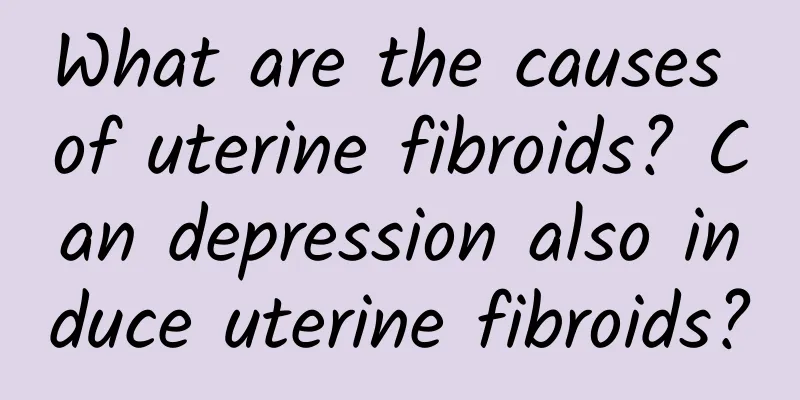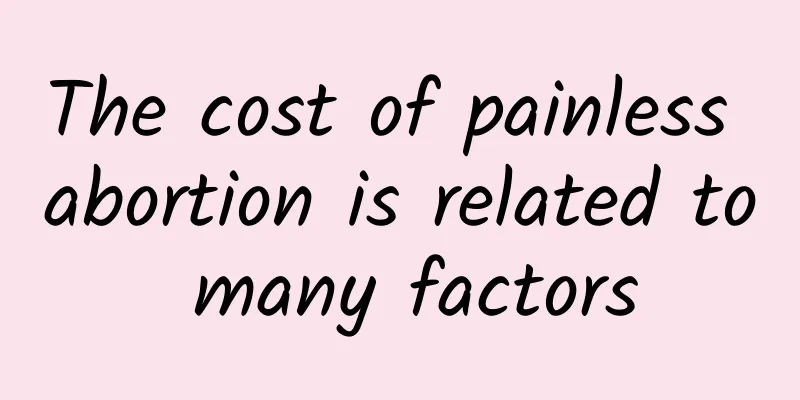What happens if threatened miscarriage is not treated?

|
Threatened abortion is a natural miscarriage. The main reason is the imperfection of male or female reproductive cells. Other reasons include gynecological inflammation or insufficient oxygen supply to the umbilical cord. Environmental influence is also a factor. Many pregnant women will experience threatened abortion. Some patients think that it is okay and they just need to rest and do not want to seek treatment. So what will happen if threatened abortion is not treated? If threatened abortion occurs, pregnant women should pay attention to rest, reduce activities, refrain from sexual intercourse, avoid unnecessary vaginal examinations, reduce stimulation to the uterus, and avoid excessive mental stress, otherwise it will cause abortion. After the bleeding stops, it is best to rest for two weeks before returning to work. This type of threatened abortion is suitable for female friends with mild symptoms of threatened abortion. No treatment is also acceptable. Threatened abortion occurs when a small amount of vaginal bleeding occurs first, followed by paroxysmal lower abdominal pain or back pain. Gynecological examination shows that the cervix is not open, the membranes are not ruptured, the products of pregnancy are not expelled, and the size of the uterus is consistent with the number of weeks of amenorrhea. Treatment to preserve the pregnancy is necessary. If not treated, bleeding will continue, leading to abortion, and the embryonic tissue in the uterine cavity should be removed immediately. It is recommended that you go to a regular hospital for treatment. It’s a 50-50 chance of miscarriage or not. Because we don’t know why there is a threatened miscarriage. Maybe you are too tired and it will be fine after a few days of rest. Or maybe it’s because your progesterone level is low and you must take a progesterone supplement. Therefore, whether threatened abortion is not treated depends on whether the patient has mild symptoms or is relatively serious. If the symptoms are relatively mild, you can not treat it, but you should pay more attention to rest. If it is serious, you must go to the hospital for treatment in time. I hope it helps you and I wish you a healthy baby soon. |
<<: Threatened abortion early treatment costs
>>: Is threatened miscarriage contagious?
Recommend
How to treat vulvar itching
How to treat vulvar itching? Causes of vulvar itc...
Are ovarian cysts serious? What are the symptoms?
Are ovarian cysts serious? What are the symptoms?...
What should not be eaten for endometrial tuberculosis
For patients with endometrial tuberculosis, a goo...
How to get pregnant after an ectopic pregnancy?
How to get pregnant after an ectopic pregnancy? E...
What is the relationship between hyperprolactinemia and amenorrhea?
Hyperprolactinemia is the most common pituitary d...
Ten things women need to know before menopause
Women's aging and menopause are inseparable, ...
A thorough understanding of the causes of uterine fibroids
In recent years, uterine fibroids have become a m...
A must-learn for those who sit for long periods of time! Four simple exercises to help lose body fat
Modern people's lifestyles are becoming more ...
Hypoplasia of the fallopian tube may lead to ectopic pregnancy in women
Hypoplasia of the fallopian tube may cause ectopi...
What are the dangers of uterine effusion in women?
What is uterine effusion? Uterine effusion is als...
What is the difference between dysfunctional uterine bleeding and menstruation?
The difference between functional uterine bleedin...
Symptoms of ectopic pregnancy are often accompanied by nausea and vomiting
Ectopic pregnancy is a nightmare for many women w...
What to do if the endometrium is thick at the age of 50
Treatments for endometrial thickening include med...
Eat egg yolks with confidence to lose weight and lower cholesterol! How many can you eat a day? The answer from Dr. Weight Loss is…
Many people probably have a concept: the choleste...
What are the symptoms of uterine fibroids at a young age? What should I do if I have uterine fibroids at a young age?
What are the symptoms of uterine fibroids at a yo...









